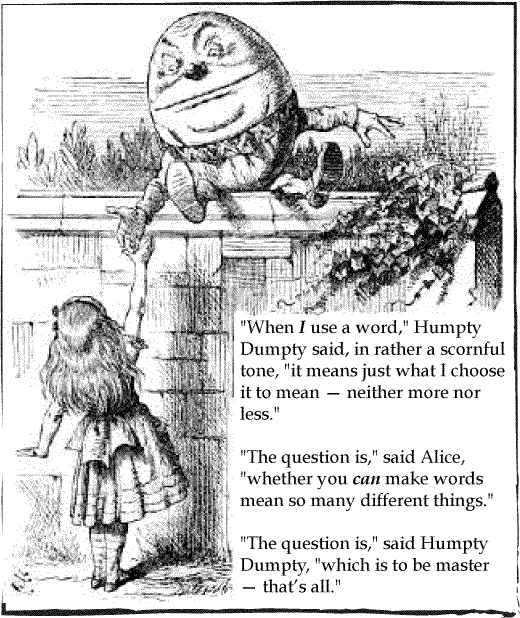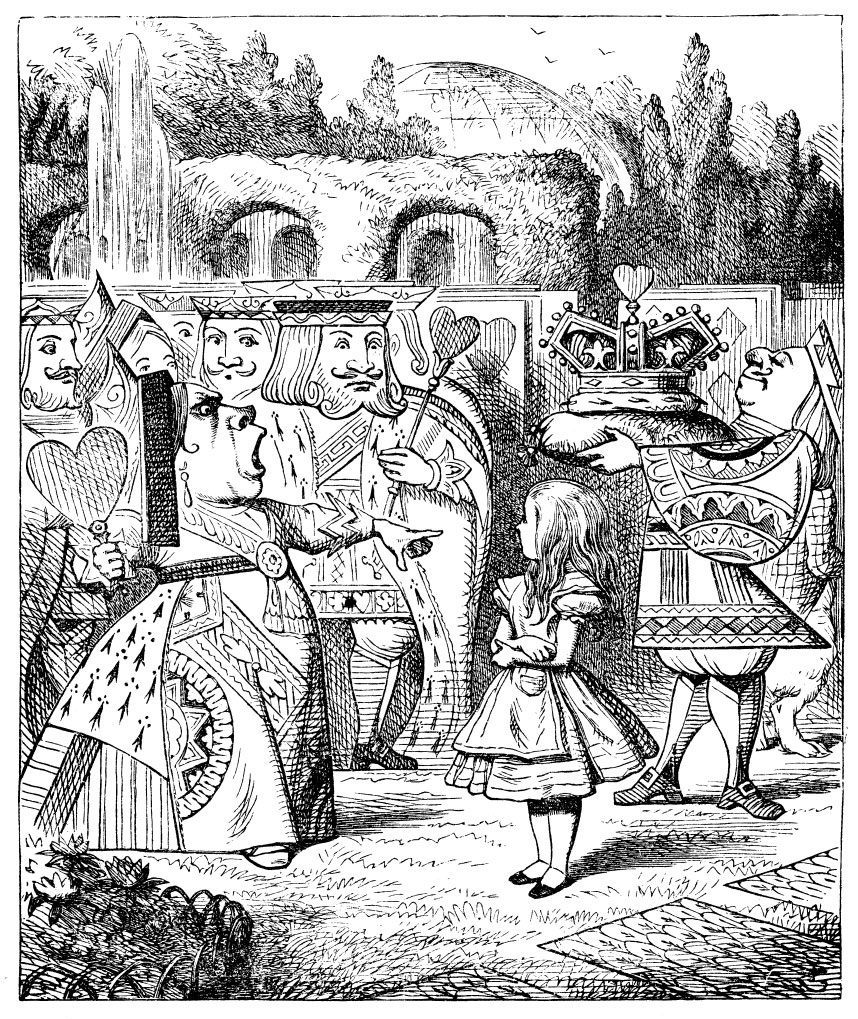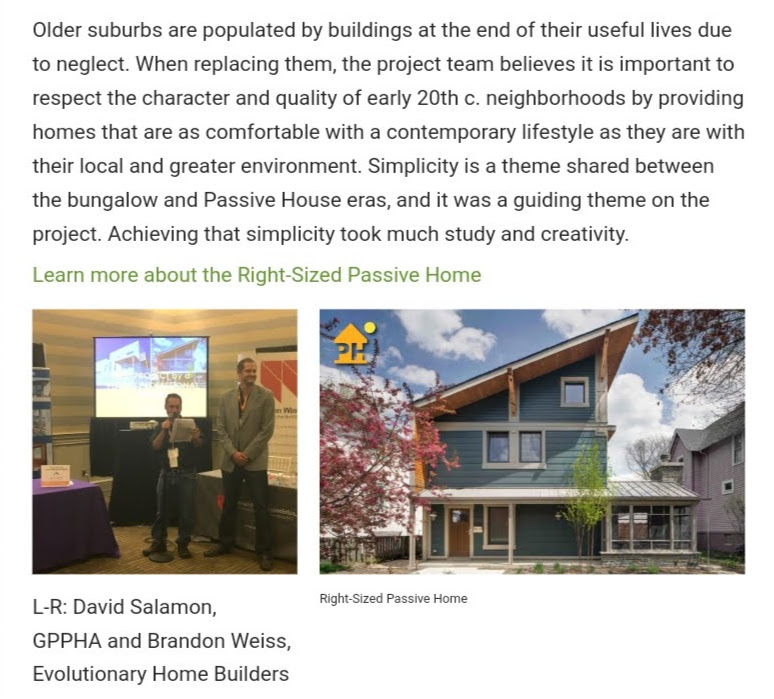Our original builder decides to settle, then disappears…
Back in early March, 2016, Brandon Weiss (owner of Evolutionary Home Builders) contacted me via voicemail and email letting us know he was interested in settling our dispute with him. This occurred — we believe not coincidentally — after he learned I had been in contact with his former clients, the Illinois Attorney General’s Consumer Fraud Bureau, and Katrin Klingenberg (founder and Executive Director of Passive House Institute US), in addition to leaving a review of EHB on the Houzz website.
He claimed he was willing to meet all of our terms — the same terms, in fact, that we had offered months ago — a partial refund of $15,000 (of the $30,000 we initially gave him), release of the copyright on our drawings, and releasing us from the contractual demand that we not build with any other contractor on our own lot for two years.
It became clear, after some back and forth, that Brandon was willing to settle, but only if we were prepared to sign a non-disclosure agreement, and only if we met with him in person. He was insistent on this last point. Brandon claimed it was because I had made public our exchanged emails and other documents pertaining to our case. We believe, however, that his intentions were to get us in a room in the hopes of intimidating us into accepting altered terms, or pressuring us to immediately sign an agreement without the benefit of review by our legal counsel.
After our lawyer asked Brandon to provide verbiage, meaning ‘what exactly do you expect us to sign’, prior to our meeting, Brandon disappeared — ceasing to respond at all — which, once again, only confirmed our suspicions regarding his real intentions all along.
Why disappear after we requested something as straightforward as seeing the document prior to our meeting? What’s in the language that’s so objectionable that we can’t see it beforehand? Who would be willing to sign a non-disclosure agreement without having their lawyer look it over first? Why do we have to sign it immediately, without ample time to review it? If normal real estate transactions can occur with only a client’s lawyer present, why not in this case? We feel Brandon has been less than transparent or fair with us, so why would we want to sit down with him ever again?

Our original lawyer gave up on this as a lost cause, so we hired a second lawyer to contact Brandon one more time. Brandon’s response: ‘same terms — and, no, you can’t see the document beforehand’.
Why not meet our terms, which are pretty basic and more than fair, and move on? Why, instead, does he continue to take such a hyper-aggressive stance? Why be so ruthless?
Furthermore, if Brandon is so sure he’s done nothing wrong, why is he so afraid of the paper trail documenting our experience with him and his company? Why the lack of transparency and obsession with secrecy, and insistence on the need for a non-disclosure agreement if Brandon, Patrick, and Eric have nothing to hide?
Even in terms of construction related information, they act as if they’re doing something that has real proprietary significance (hence, the claim of intellectual property regarding the budget numbers), but they’re not. Virtually everything they do — the products chosen, the process of putting them together — is open-sourced on the internet, in books and magazines, and even in free videos on YouTube.
It’s always been my understanding that the Passive House community (and the larger Green Building Movement generally) prides itself on exactly this kind of openness since it’s supposed to benefit builder and client alike (e.g., Green Building Advisor, Proud Green Building, Building Green, Matt Risinger, GO Logic, Fine Homebuilding, along with countless other sites and forums).
“…if Brandon’s original build budget numbers were accurate, then the premium to build to the Passive House standard is at least 25-30%, in which case PHIUS needs to stop telling consumers it is only 10%. If Brandon’s numbers, on the other hand, were less than entirely honest, why defend him?“
In addition, if you compare Brandon and EHB’s attitude towards construction related information with another Passive House builder, Hammer and Hand, it’s hard to imagine how the contrast could be any more stark (think North Korea vs. South Korea). In Brandon’s case, he seems to treat virtually everything as intellectual property, while Hammer and Hand is busy giving away information through countless job site videos and their Best Practices Manual. Based on this alone, who would you trust to build your new house? Who would you entrust with your life savings?
It’s not as if Evolutionary Home Builders are Coca-Cola or KFC — there’s no secret recipe or formula for what they do. Even more to the point: What information in their possession is not readily available from any number of other sources? The IP claim is so weak that even if they broke down the construction budget by components and every phase of the build, with a dollar amount assigned to each one, it would still be a case of ‘so what’. No one, even at that point, would know how much of each dollar amount is profit or overhead, so the information is virtually meaningless.
Knowledge is nice to have, to be sure, but it means nothing without proper execution — as any venture capitalist in Silicon Valley will calmly explain before refusing to sign a start-up’s NDA. In other words, if you’re a Passive House builder, put your time and effort into building high quality structures at a fair price that your clients are thrilled with (so your clients will sing your praises), rather than wasting time worrying about protecting information that’s so easily accessible anyway (via the internet, books, magazines, etc.).
Put still another way: If the sum total of what you believe is your intellectual property can be revealed and then successfully copied by others when simply written down on a piece of paper (e.g., build budget numbers), then there probably isn’t much to protect to begin with. Isn’t this the implicit message sent by any number of builders, including Hammer and Hand, when they are so open about the details of how they build?
Consequently, it doesn’t seem to matter from which angle you approach the claim of intellectual property — product, process, or even how they price out a build — the claim itself rings hollow. All of which leads to the obvious question: If it’s not intellectual property that they’re trying to protect with a non-disclosure agreement, what is it that they want hidden from view?

The response to our situation by Passive House Institute US (PHIUS) also proved to be a disappointment. We have reached out twice now — originally to Mark Miller, and, most recently, to Katrin Klingenberg — yet, in each instance, our request for help was soundly rebuffed.
For example, after our budget meeting with Brandon and his team in late November, 2015, we contacted Chicago architect Mark Miller in early December, having found his information on the PHIUS website as a Certified Passive House Consultant and a Certified PHIUS Builder. Here is how that exchange went: emails.
What gets interesting is comparing the dates of our initial email exchange with Mr. Miller with Brandon’s email containing the bizarre offer (12-9-15 email) to send us to Belize. It doesn’t take a master detective to deduce what happened during that twenty four hour period between the 9th and 10th of December:
After Mr. Miller contacted Brandon or Patrick on the 9th to find out about our project, and one or both of them portrayed us in a negative light, that very same day Brandon sent us the Belize invitation — no doubt his lame attempt at soothing what he perceived to be our ruffled feathers. It was obvious what had transpired, so it wasn’t all that surprising to get Mr. Miller’s final, patronizing reply the next day on the 10th.
As to Mr. Miller’s points, specifically:
- “… may not have been for a well-defined project…” Our project has remained the same going back even before our initial meeting with Brandon: approximately 1600 sq. ft. single-story home, insulated well above code, with high-performance windows and doors, 2-BR, 2-Bath, main kitchen/family room area, a 9′ unfinished full-basement, charred cedar for the exterior siding, and we’ve kept the same flooring selections we originally started with, along with a basic door casing and baseboard trim package.
- “… reduce costs to better help meet your budget.” Only after EHB went way over budget. Only after we made it clear we were walking away. No doubt they would have been happy to see us just accept the $500,000 price and move forward with the build.
- “… wish list items…” What wish list items? The only thing we added after the preliminary budget was 66 sq. ft. of construction space (original 40′ x 40′ structure changed to 49′ x 34′ structure). We’re going for a pared-down design aesthetic based on our tastes, but also to save money, so there is no crown molding, chair railing, wainscoting, coffered ceilings, an oak-lined office, or master bathroom wrapped in Carrara marble. Clearly this is why the only ‘solutions’ Brandon and his team came up with for cost savings during the November, 2015 budget meeting included dramatic structural changes, not altering or deleting extravagant interior design choices.
- “… PH plaque…” Mr. Miller refers to this twice, so I can only assume Brandon or Patrick put this in his head. To hint that our attitude was “Passive House certification or bust” is particularly grating since we asked if pulling back from the standard could produce meaningful savings in our May, 2015 meeting with Brandon and Patrick, to which they responded, “No, this is the way we build.”
- “… wish list items…compromise somewhere… shift perspective… PH plaque… brag to your friends/family…” It’s pretty obvious that Brandon or Patrick painted us as wildly unreasonable clients who wanted the world for a steal. I would argue the emails between Brandon and myself draw a very different picture.

In Mr. Miller’s defense, we were not his clients, and he was basing his response to us on what Brandon or Patrick told him. Nevertheless, we were asking for help, and we did offer to show him everything related to our project, but unfortunately he ignored the offer.
When we reached out to Ms. Klingenberg, we fared no better: emails.
We were not expecting her to act as judge or jury, we were genuinely asking for help in the form of guidance:
- Why were the numbers of the build budget so different from those outlined in the PSA?
- What did Brandon mean by “additional Passive House components were necessary” (because he never told us, even though we repeatedly asked)?
- What could we have done differently?
- Since the Passive House community is so small, who could we trust, moving forward, to not have a conflict of interest with Brandon? Is there an architect, a general contractor, or Passive House consultant in the Chicago area that they thought we could reach out to?
Instead we got the more polite equivalent of: ‘Shut up. Go away.’
Why is their first impulse to try and put me in my place, to try and squash me? It must be said, the arrogance on display throughout this process has been startling. Is it really so difficult to be nice to other people — especially when they are asking for help?

Regarding Ms. Klingenberg’s response, in particular, what is “[Brandon’s] side of the story”. She doesn’t choose to share it with us. And what exactly justifies any builder taking $30,000 from a client and then giving them nothing in return?
As to her suggestion, “the next steps are outlined in your contract,” does she really believe, quoting the PSA now, that “[forced] arbitration before the Northern Illinois Home Builders Association” is the best setting for us to get a fair hearing? This is like suggesting that if a customer had a dispute with ExxonMobil it would make sense to ask the American Petroleum Institute to act as referee.
And I’m certainly not alone in believing forced arbitration to be an overly business-friendly, Kafkaesque joke ( Bill / Study Shines Light / Part I / Part II ), with serious consequences for consumers, and even for the overall health of democracy in America (#ripoffclause). In fact, there is a growing movement in the US pushing members of Congress to prohibit forced arbitration clauses altogether. When people with authority (the arbitrator) have the option to take the side of the strong against the weak, regardless of the evidence (after all, it’s the companies who pay for the arbitrator), justice is rarely going to be the result.
It’s also surprising, even reprehensible in my opinion, that PHIUS not only tolerates but apparently supports forced arbitration. As an institution they portray themselves as enlightened and forward-thinking, so how can they allow their certified members to utilize such deeply flawed, even reactionary, language in their contracts with clients?
“Where do Ms. Klingenberg’s loyalties lie: with the certified members, or with the homeowners? If the honest answer is with the certified members, then this is useful information for any consumer weighing the costs associated with a certified Passive House build.“
Change is possible: End of Forced Arbitration for Sexual Assault and Harassment
If the construction industry is serious about cleaning up its reputation (and make no mistake about it, its current status is horrific — for example, when we tell anyone that we’re building a new house the typical response is roughly: ‘why would you want to put yourself through that?‘), then getting rid of forced arbitration clauses in contracts would be an excellent place to start.
Which prompts several questions:
- Why isn’t PHIUS out front leading on this issue?
- If not PHIUS, then who? It’s a certainty that The National Association of Home Builders won’t be leading the charge.
- Why doesn’t PHIUS require their certified members to eliminate all forced arbitration clauses from their contracts?
If their answer is: ‘it’s current industry standard’ — well, so is building to code, but they don’t tolerate that. PHIUS holds their members to a higher standard when it comes to the structure, so why give them a pass on how they treat the human beings who have to pay for and live in these structures?
Maybe more to the point: Why are they using forced arbitration as an excuse to ignore Brandon’s behavior?
“…as a 2009 Economist editorial put it, ‘You cannot claim that your mission is to ‘educate the leaders who make a difference to the world’ and then wash your hands of your alumni when the difference they make is malign’.”
Isn’t a PSA document like the one used by Brandon and EHB a license to defraud clients? By including language such as a non-refundable deposit, and insisting on forced arbitration before an industry paid-for arbitrator, a client has no meaningful options should a dispute arise.
And if, in fact, Brandon baits potential clients with a reasonable sounding preliminary budget in the PSA (this is what we believe he did to us), taking a hefty down payment at signing, and then switches that budget number significantly, and without cause, when presenting a build budget (again, what we believe he did to us), by definition the client has no effective means of defending themselves. It’s a case of Hobson’s choice –— take what’s offered (a ridiculously exorbitant budget) or get nothing at all (again, what we believe happened to us).
Moreover, when Ms. Klingenberg suggests, “We can try to help with advice during the certification process…”, it sounds like she’s more than happy to take our money for certification, but she otherwise can’t be bothered to address what Brandon and EHB have done to our life savings, the time we have lost, or the needless stress that has been inflicted — even when, in large measure, it was their PHIUS stamp of approval (via certification) that encouraged us to pursue a build with Brandon and EHB in the first place.

Mr. Miller’s and Ms. Klingenberg’s replies exhibit a total indifference to the facts at hand. Apparently they would prefer to close ranks around Brandon and EHB rather than confront what Brandon has done to me and my family — taking $30,000 of our life savings and giving us, quite literally, nothing in return. If their responses are any barometer, then clearly PHIUS believes this to be a fair exchange.
Also troubling, if the Passive House concept is ever truly going to be a mainstream idea, rather than perceived as a niche design option for the wealthy, doesn’t PHIUS and its certified members want people like my wife and I — a high school teacher and a stay at home parent — to pursue and even celebrate the Passive House standard? After all, they have a tab at the top of their website soliciting donations for the cause: “Help Make Passive Building Mainstream”.
Moreover, if the premium to build to the Passive House standard is really only 10%, then, considering our own experience, what other conclusion is there but that the fix is in? In other words, if Brandon’s original build budget numbers were accurate, then the premium to build to the Passive House standard is at least 25-30%, in which case PHIUS needs to stop telling consumers it is only 10%. If Brandon’s numbers, on the other hand, were less than entirely honest, why defend him?
Where do Ms. Klingenberg’s loyalties lie: with the certified members, or with the homeowners? If the honest answer is with the certified members, then this is useful information for any consumer weighing the costs associated with a certified Passive House build.
As Martin Parker notes in a Guardian article regarding Business Schools and MBA Programs and their propensity to dismiss critics when things go horribly wrong in the economy, “That’s a tricky position, though, because, as a 2009 Economist editorial put it, ‘You cannot claim that your mission is to ‘educate the leaders who make a difference to the world’ and then wash your hands of your alumni when the difference they make is malign’.”
In addition, and rather pointedly, doesn’t Ms. Klingenberg’s response represent a dramatic failure of leadership? What should a person in a leadership role do when bad news comes their way: Confront it, work through it, and then move on? Ignore it? Or — worst option of all — should they try to bury it?
How can she (or Mr. Miller, for that matter) offer such flippant responses when someone else’s life savings are on the line? Do certified PHIUS members really believe this is an appropriate way to respond?

Furthermore, why are they so quick to take Brandon’s side? In the case of Mr. Miller, without even examining the evidence I was willing to offer. In Ms. Klingenberg’s case, is it because Brandon successfully achieved the Passive House standard on several projects? Doesn’t it matter how he achieved the standard? For example, you would think they might be interested in what Brandon’s previous clients have to say regarding their own experience building with him — e.g., pricing, timeline, job site conditions, the cost to build vs. an actual real estate valuation, etc... Or does none of this matter?
More importantly, why not make customer satisfaction a component of the Passive House requirements? After all, what is the point of meeting all the stringent guidelines for Passive House certification if the result is a homeowner who feels beaten up by a design and build process that forces the conclusion that they have been financially exploited?
Does PHIUS only care about boxes and how they perform, or do they have a genuine interest in the people who live in them? If the answer is both, then why are they not actively evaluating the experience of homeowners along with the performance of the structures? How can a certified Passive House structure that contains an owner who is now cynical about the build process not be considered a failure?

Moreover, as an institution, does PHIUS have policies in place to censure, or otherwise hold to account, its certified members should they behave unethically or even criminally? If such policies exist, have they ever actually been enforced? Or, are we to believe all of their members are morally and ethically perfect?
For a certified PHIUS member who is in good standing, who treats people the right way, it would certainly be irksome to know Brandon and his team get to be listed next to them without even an asterisk to note the difference. Don’t certified members want there to be clear-cut guidelines regarding how architects, builders, and consultants should conduct themselves, and shouldn’t there be serious consequences for those who choose to contravene those guidelines?
“Nonprofit executives and board members also should be willing to ask uncomfortable questions: Not just ‘Is it legal?’ but also ‘Is it fair?’ ‘Is it honest?’ ‘Does it advance societal interests or pose unreasonable risks?’ and ‘How would it feel to defend the decision on the evening news?’ Not only do leaders need to ask those questions of themselves, they also need to invite unwelcome answers from others. To counter self-serving biases and organizational pressures, people in positions of power should actively solicit diverse perspectives and dissenting views. Every leader’s internal moral compass needs to be checked against external reference points.”
— Deborah L. Rhode & Amanda K. Packel
But then expecting even a modicum of objectivity from Mr. Miller, Ms. Klingenberg, or PHIUS was probably expecting too much:
2015 PHIUS Awards:

2016 PHIUS Awards:

Should the leader of an organization sit on a panel with other judges handing out awards to that organization’s members? It seems like this would be an excellent time to recuse oneself, if only to avoid even a hint of favoritism or undue bias. As a Law School Professor might frame it: ‘It’s not enough to refrain from unethical behavior, you need to avoid even the appearance of unethical behavior‘.
Yet, as a consumer, I’m expected to believe Ms. Klingenberg examined the evidence I sent her with an open mind, and that she reached an impartial determination as to what transpired between my family and EHB [?]. One wonders, did she even bother to contact any of Brandon’s former clients to ask about their experience building with Brandon and EHB? She didn’t take the time to sit down with us, or even ask us any questions via email, to establish whether we were just irrational cranks or if we had legitimate points to make. Apparently Brandon’s say-so that he had done nothing wrong was good enough for her.
It bears repeating what was at risk here: a family’s life savings. It’s also worth noting that it’s not enough for PHIUS to proclaim progressive values, those values should be reflected in the actions of individual members, as well as the actions and policies of the institution itself. Based on our own experience, we feel PHIUS is just one more institution that consumers and citizens cannot depend on to do the right thing when it matters most. But maybe to them this is all simply a case of: ‘it’s just business’.
It is undeniable that institutions have a nasty habit of closing ranks around their members, even the ones who clearly misbehave. If the member in question turns out to be a bad actor, however, then it is also true that this unquestionably reflects poorly on the institution’s integrity. Consider the recent history of the Chicago police department: Code of Silence / Laquan McDonald’s Shooting / Brutal History
What will Mr. Miller, Ms. Klingenberg, and PHIUS do as individuals and as an institution when this happens again (inevitably, when you consider the whole ‘leopard and his spots’ brand of folk wisdom)? Before protecting Brandon and EHB so forcefully, perhaps they should make sure he is telling them the truth.
“If the existing order were a model order, and just and right in every respect, I naturally would have no objections to it. Since, however, it is a mixture of much that is good and much that is evil, unjust, and defective, to be called a friend of the existing order often is to be called a friend of what has outlived its usefulness and is principally evil. Progress is unceasing. Society is constantly changing. Institutions which at first suited the conditions under which they originated may become criminally unjust a half century later.”
—Johann Wolfgang von Goethe

In light of the ever-quickening pace of our modern world, perhaps Goethe’s suggested timetable should be halved, in which case the Passive House concept is ripe for fundamental reform — going well beyond adjustments for climatic differences. History, it should be added, suggests those who currently hold positions of authority in the Passive House movement are unlikely to make the hard choices, or have the stomach to execute a meaningful overhaul.
For more details on how this all got started, check out these posts:


You must be logged in to post a comment.